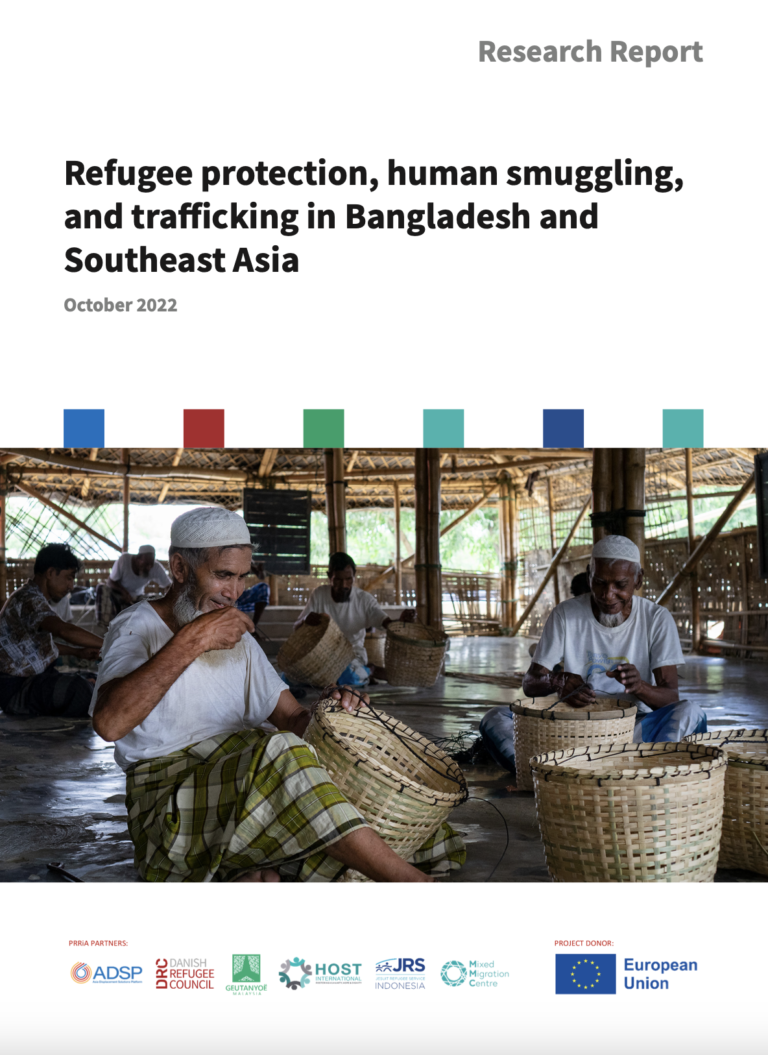The ‘Protecting Rohingya Refugees in Asia’ project brings together the Danish Refugee Council, the Asia Displacement Solutions Platform, the Mixed Migration Centre, Jesuit Refugee Service (JRS) Indonesia, HOST International, and the Geutanyoë Foundation to enhance regional protection responses in support of Rohingya refugees. Through support from the European Civil Protection and Humanitarian Aid Operations (ECHO), the project aims to identify and address the protection risks and needs of Rohingya refugees in Southeast Asia with a particular focus on Thailand, Malaysia, and Indonesia. It combines evidence-based research with programmatic and advocacy expertise to allow project partners, through their comparative advantages, to explore and advocate through new paths to support Rohingya refugees and the communities hosting them.
The first research project under the project is entitled ‘Refugee protection, human smuggling, and trafficking in Bangladesh and Southeast Asia‘. The report critically assesses the risks and needs of Rohingya refugees in Bangladesh and Southeast Asia across three thematic domains: protection, human trafficking, and human smuggling. The research draws from three national contexts: Thailand, Malaysia, and Indonesia.
The research presented 26 findings. Through close consultations between the research team and PRRiA project partners, these findings informed the development of a series of conclusions and recommendations. The primary conclusions are:
Conclusion 1: Smuggling networks enable Rohingya to leave deteriorating living conditions in Myanmar and Bangladesh and seek access to social services and economic opportunities in host countries.
Conclusion 2: An important catalyst in the adoption and architecture of national protection policies are the ASEAN Declaration on the Rights of Children in the Context of Migration, the ASEAN Convention Against Trafficking in Persons, and respective Plans of Action.
Conclusion 3: National governments have the responsibility to address protection needs by establishing clarity between smuggling and trafficking including through stronger policies with consistent messaging, implementation, and enforcement.
Conclusion 4: Civil society actors and stakeholders are limited in advocating for change in national governments due to power imbalances in partnerships, barriers to resources, and lack of political will.
Conclusion 5: The lack of national rights that recognise and safeguard refugee status is a fundamental barrier to protection in Thailand and Malaysia. Across the region, national governments must continue to address restrictions on work for refugees and access to basic services.

